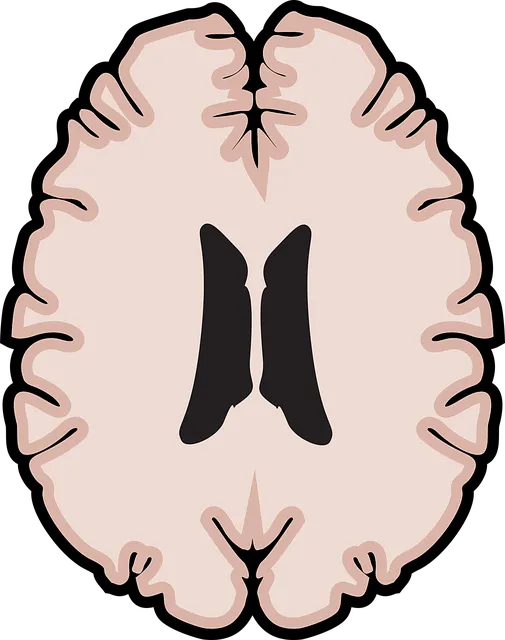Depression prevention requires early recognition of symptoms and a holistic approach. The Castle Rock Kaiser Permanente psychiatry phone number provides access to specialized care, guiding individuals through management strategies like exercise, diet, mindfulness, and therapy. They offer tailored treatments including CBT, support groups, and medication options. Building resilience through self-awareness and emotional intelligence is key to long-term prevention, emphasizing the importance of proactive mental health practices.
Depression is a serious yet treatable condition that impacts millions. If you’re feeling overwhelmed, know that there are effective strategies to prevent and manage it. This comprehensive guide explores various approaches to combating depression, from understanding its signs and symptoms to adopting lifestyle changes, therapy options (including support groups at Castle Rock Kaiser Permanente), medication discussions with your psychiatrist, and building long-term resilience. Contact the Castle Rock Kaiser Permanente psychiatry department for personalized support and guidance today.
- Understanding Depression: Recognizing Signs and Symptoms
- Lifestyle Changes for a Brighter Mindset
- The Role of Therapy and Support Groups
- Medication Options: Talking to Your Psychiatrist at Castle Rock Kaiser Permanente
- Building Resilience: Long-term Strategies for Prevention
Understanding Depression: Recognizing Signs and Symptoms

Depression is a complex mental health condition that affects millions worldwide. Understanding its intricacies is a vital step in prevention. Recognizing signs and symptoms early on can make a significant difference in effective treatment and management. The Castle Rock Kaiser Permanente psychiatry phone number provides access to specialized care, offering guidance and support for those experiencing depressive episodes or at-risk individuals.
This process involves not just identifying typical emotional changes but also physical and behavioral shifts. Common indicators include persistent feelings of sadness, loss of interest in activities once enjoyed, changes in appetite and sleep patterns, fatigue, difficulty concentrating, and thoughts of worthlessness. Encouraging open conversations about mental health, especially within educational programs designed to enhance emotional intelligence, can foster early detection and promote self-care practices, ultimately contributing to the prevention of depression.
Lifestyle Changes for a Brighter Mindset

Adopting a healthier lifestyle can significantly contribute to preventing depression and fostering a brighter mindset. Regular exercise, for instance, releases endorphins that boost mood and reduce stress. Aim for at least 30 minutes of moderate physical activity most days of the week, whether it’s walking, swimming, or joining a fitness class. A balanced diet is another cornerstone; ensuring you get enough omega-3 fatty acids, vitamins B and D, and magnesium can support brain health. These nutrients are found in leafy greens, berries, whole grains, and healthy fats like avocado and nuts.
In addition to physical well-being, nurturing your mental health is paramount. Practicing mindfulness meditation or yoga can help manage stress and cultivate a sense of calm. Setting boundaries and prioritizing quality sleep also play crucial roles. If you feel overwhelmed or experience persistent low mood, reach out to Castle Rock Kaiser Permanente psychiatry for support. Their phone number is readily available online, offering easy access to expert guidance on burnout prevention and empathy-building strategies tailored to your needs.
The Role of Therapy and Support Groups

Depression can be a devastating condition, but it’s preventable with the right strategies. One of the most effective approaches is seeking professional help through therapy and support groups. At Castle Rock Kaiser Permanente psychiatry, trained professionals offer specialized care tailored to individual needs. These services provide a safe space for individuals to process emotions, gain valuable insights, and develop coping mechanisms.
Therapy, such as cognitive-behavioral therapy (CBT), has been proven effective in treating depression by identifying and changing negative thought patterns and behaviors. Support groups, on the other hand, offer peer-to-peer connections, fostering a sense of belonging and understanding. Both approaches are crucial for managing mood disorders, especially when combined with self-care routine development for better mental health. For those dealing with trauma, additional resources like Trauma Support Services can be invaluable in the prevention and healing process.
Medication Options: Talking to Your Psychiatrist at Castle Rock Kaiser Permanente

At Castle Rock Kaiser Permanente, individuals seeking support for depression have access to a range of medication options. The first step is often a consultation with a psychiatrist who can assess symptoms and provide personalized treatment plans. These plans may include antidepressant medications, which work by balancing brain chemicals involved in mood regulation. It’s important to discuss any concerns or questions about medication during these initial conversations; your psychiatrist at Castle Rock Kaiser Permanente is there to ensure you understand the benefits and potential side effects of each option.
Effective communication strategies with healthcare providers are crucial for managing depression. Patients should feel comfortable discussing their feelings, fears, and expectations with their psychiatrist. Building a strong relationship centered on open dialogue facilitates a more accurate diagnosis and tailored treatment. Moreover, working closely with your psychiatrist enables the development of coping skills and self-esteem improvement techniques that complement medication.
Building Resilience: Long-term Strategies for Prevention

Building resilience is a key long-term strategy for depression prevention. Encouraging self-awareness exercises and practices that foster emotional intelligence can help individuals better understand their thoughts, feelings, and triggers. This proactive approach equips people with tools to navigate life’s challenges more effectively, enhancing their ability to cope with stress and maintain positive moods.
At Castle Rock Kaiser Permanente psychiatry, we emphasize the importance of integrating self-care routines into daily life, including mindfulness practices, regular exercise, and adequate sleep. By prioritizing these aspects, individuals can strengthen their mental fortitude, making them better prepared to face setbacks and maintain overall well-being. This holistic approach, combining professional support with personal proactive measures, is crucial in preventing depressive episodes.
Depression prevention is a multifaceted approach, and by combining understanding, lifestyle adjustments, therapy, and building resilience, individuals can effectively safeguard their mental health. For personalized guidance, contacting the Castle Rock Kaiser Permanente psychiatry department is a vital step. Their dedicated team offers tailored support and treatment options to help manage and prevent depression. Remember, recognizing early signs and implementing these strategies can make a significant difference in maintaining a brighter and more balanced mindset.






